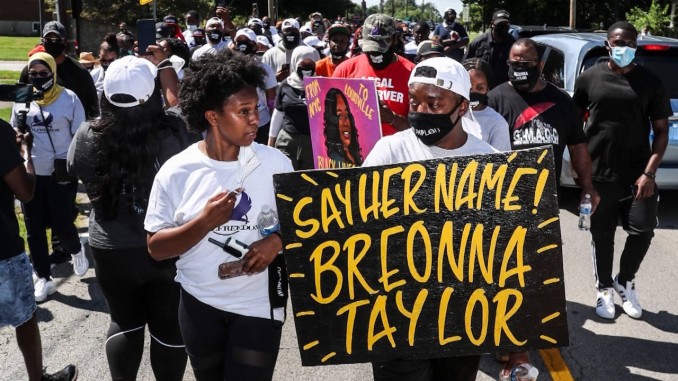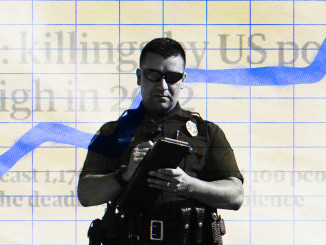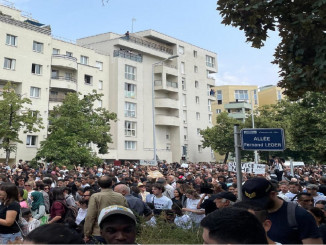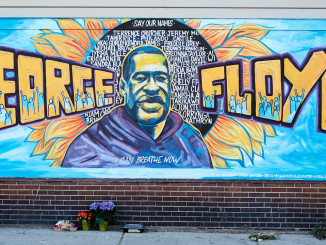
First it was the cops. Breonna Taylor was murdered in her home by police in the middle of the night last March. Police had a warrant for someone who they claimed was dealing drugs out of Taylor’s apartment. Taylor’s boyfriend called 911 to report that someone was trying to break into the apartment and fired a warning shot at the door, which wounded a policeman. Police fired over 30 rounds, six of them killing Taylor. The shot cop was treated on the scene and rushed to the hospital. Taylor, bleeding on the floor, received no medical attention for 20 minutes by which time she was dead. Police found no drugs or other contraband. Taylor’s boyfriend had a permit for his gun. At the time cops broke in to her apartment, another squad of police had already arrested the drug suspect at another location. City officials immediately began a coverup of what actually happened.
Five months later, it was the Attorney General. With protests making clear the issue wasn’t going to go away, Kentucky’s Attorney General, Daniel Cameron, convened a grand jury to investigate, hoping that would take the pressure off. The grand jury’s decision not to charge any of the cops with murder, or even manslaughter, had the opposite effect, especially after one of the jurors went public with what actually happened during the grand jury proceedings.
The juror said that Atty. Gen. Cameron refused to allow the jury to hear testimony from a dozen of Breonna Taylor’s neighbors saying that the police never announced themselves before starting to break down the door. The prosecutors also failed to inform the jury that the one witness who testified he heard the police announce themselves had said the opposite when he was first interviewed. Nor did the jury know that a Kentucky state police investigation cast doubt on the reliability of this witness. The Kentucky State police laboratory was unable to confirm that the bullet wounding the Louisville officer actually came from inside the apartment. The judge who issued the no-knock warrant later told the press that she believed the officer had lied about the evidence used to justify the warrant. Lastly, the juror revealed Atty. Gen. Cameron had ordered the jury not to bring any murder or even manslaughter charges against the cops, saying in his view Kentucky law automatically exonerated police since they said they were shooting in self-defense. Previously the Attorney General had said it was up to the jury, not him, to decide about charges after hearing all the evidence.
Angry demonstrations have resumed, facing down police wielding billy clubs and firing tear gas. A Louisville state legislator marching with her college age daughter was charged with felony riot when they and the other marchers refused to disburse. Demonstrators hope that the outrage over Taylor’s murder and the coverup will force the government to bring the cops to trial.
What else is being covered up? A revealing back story is starting to come out. Louisville police have been targeting selected poor black neighborhoods for intense drug sweeps and other kinds of concentrated policing in an effort to open them up for slum clearance and eventual re-development. It may turn out that Breonna Taylor was collateral damage in the very profitable process of Louisville’s gentrification.




